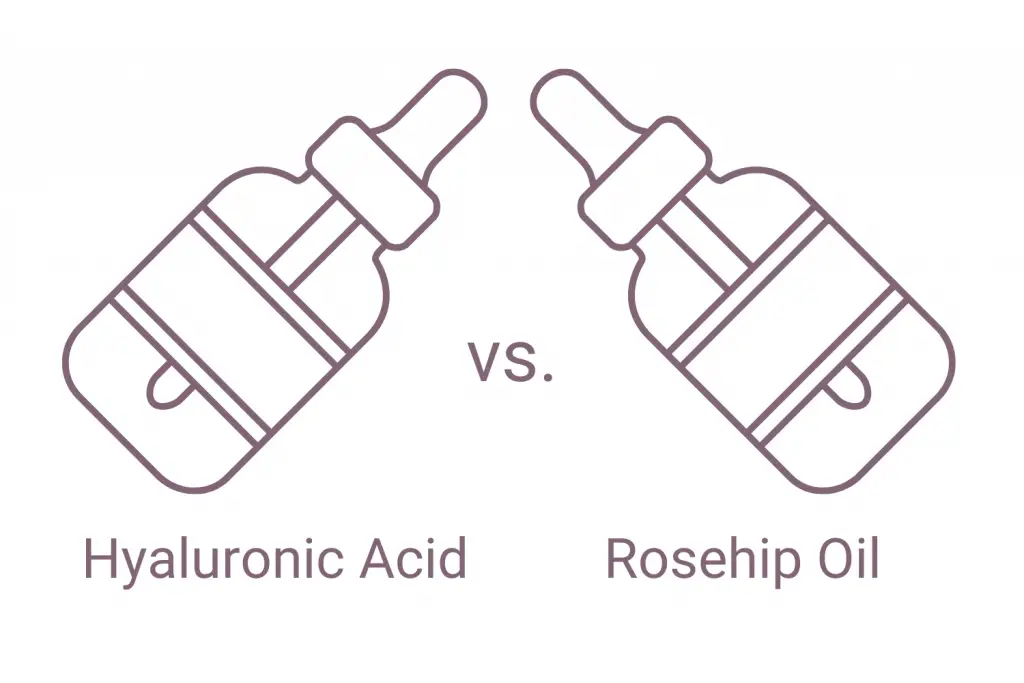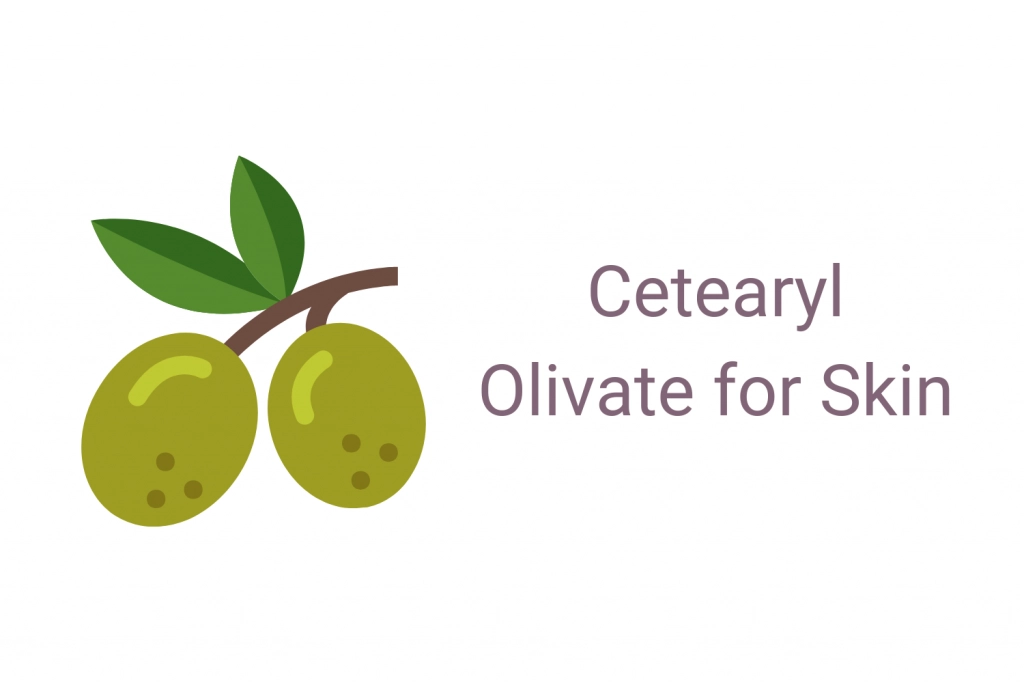There are numerous ingredients in most skin care products that people use daily, and if you have ever read the labels of some of these products, you might wonder what many of these ingredients are and how they work to improve the condition of your skin.
This post may contain affiliate links. Read the full disclosure here
Two ingredients that are commonly found in skincare products are hyaluronic acid and rosehip oil. But you might be wondering, what’s the difference between them, or which one is better?
Let’s take a look at the benefits, similarities, and differences of hyaluronic acid vs. rosehip oil.
Spoiler alert: We love both of these ingredients and they go well together! But if you had to choose one, hyaluronic acid is the winner for wrinkles and fine lines. But rosehip oil is the anti-aging winner for blemishes problem skin.
What is hyaluronic acid?
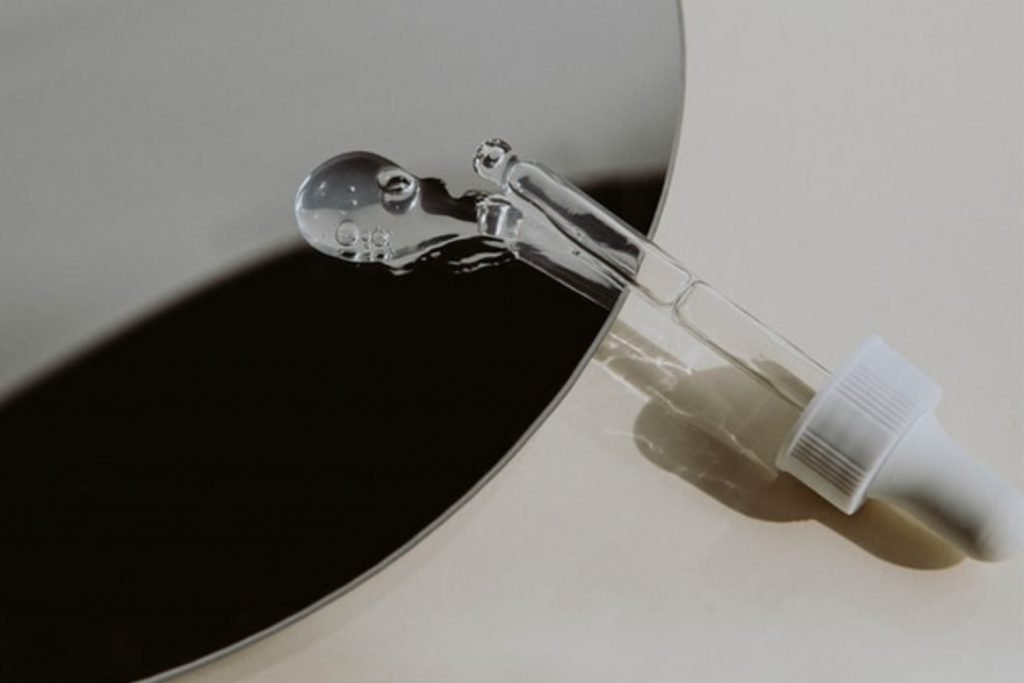
Hyaluronic acid, which is otherwise known as HA, is a substance that acts as a humectant, as it promotes moisture within the skin. While HA is naturally found in the body, especially in the eyes, skin, and joint fluid, the HA that is used in the many beauty products on the market is made in a lab using bacteria and a process called biofermentation.
Biofermentation changes the structure of the bacteria, making it easy to use and effective in a multitude of products. Hyaluronic acid can also be derived from the fatty tissue of animals.
Hyaluronic acid is a molecule that helps to maintain moisture in the eyes and skin, and it keeps the joints in the body lubricated. As people grow older, the amount of hyaluronic acid in their bodies is reduced, which can lead to aging wrinkled skin, as well as degenerative arthritis, which most commonly occurs in the knees.
Lab-made HA is commonly used in eye drops, face creams, certain dietary supplements, serums, and injections. Many people that consistently utilize these products notice a significant improvement in their appearance, as well as a reduction in the pain and stiffness of osteoarthritis.
However, the way a person responds to treatment depends on various factors, including how much time they spend in the sun, their genetics, their diet, and how often the treatment is used.
Hyaluronic acid benefits
Hyaluronic acid is used in various skincare products for a reason, as it has many great benefits.
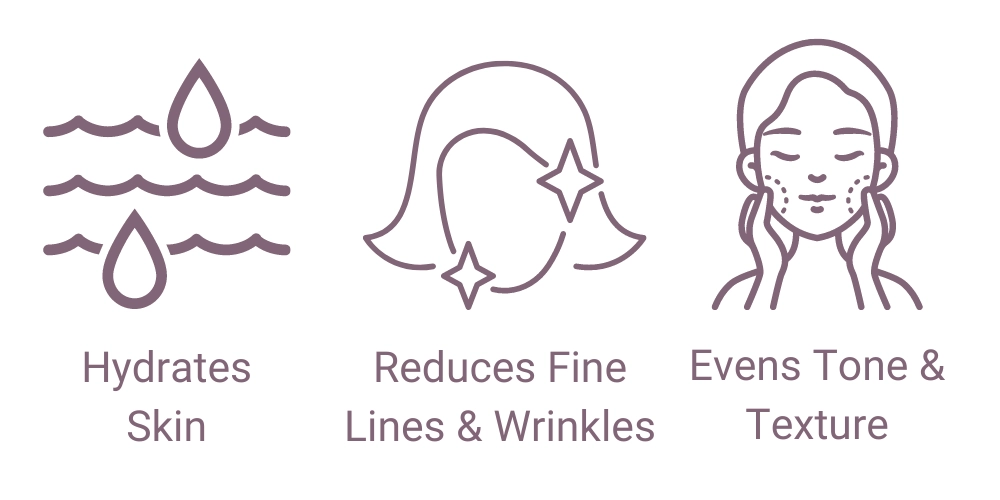
Promotes supple, youthful skin
One major benefit of this ingredient is its ability to promote younger, more supple-looking skin by encouraging tremendous retention of moisture.
Helps the skin retain moisture
HA has the ability to absorb and retain as much as 1,000 times its weight in water. This is the main reason this popular ingredient has gained so much attention lately. Studies show that consumers who consistently use products containing HA as its main ingredient over two-weeks noticed a whopping 96% improvement in the moisture of their skin.
Great even for sensitive skin
Even though the HA that is produced in a lab is synthetic, it is extremely gentle on the skin and has a pH of somewhere between 5 and 8. This perfectly complements the skin, which has a normal pH of 4.5 to 6.2.
Reduces the appearance of wrinkles
A study was performed on a group of individuals whose goal was to minimize the appearance of lines and wrinkles on their faces. After using the HA-containing product on a daily or even a twice-daily basis, users noticed as much as a 40% reduction in the appearance of wrinkles and lines.
Helps increase firmness
Hyaluronic acid is also beneficial for increasing the firmness of the skin. In aging individuals, the topical use of HA increased the firmness of the skin by approximately 55%.
When HA is injected directly into the skin, many consumers who participated in various studies were impressed with how much more youthful their appearance was.
Promotes skin tissue regeneration
Many consumers opt to take hyaluronic acid in supplement form. In this form, the benefits of this compound can often be seen from the inside out. HA lubricates the tissues, joints, eyes, and it also promotes the regeneration of skin tissue.
Some users rave about noticing improvements in their immune systems as well as increased speed in the healing of wounds by supplementing with hyaluronic acid.
Orthopedic surgeons have been able to delay many patients’ surgeries to replace the knee joints through the use of HA injections. These injections work by temporarily replacing the cushioning that has been lost through arthritis and other degenerative diseases, enabling patients to be able to function without pain and stiffness.
Although the effect is temporary, hyaluronic acid injections have been shown to dramatically improve the quality of life in many people suffering from osteoarthritis.
More hyaluronic acid comparison articles you might like:
What is rosehip oil?
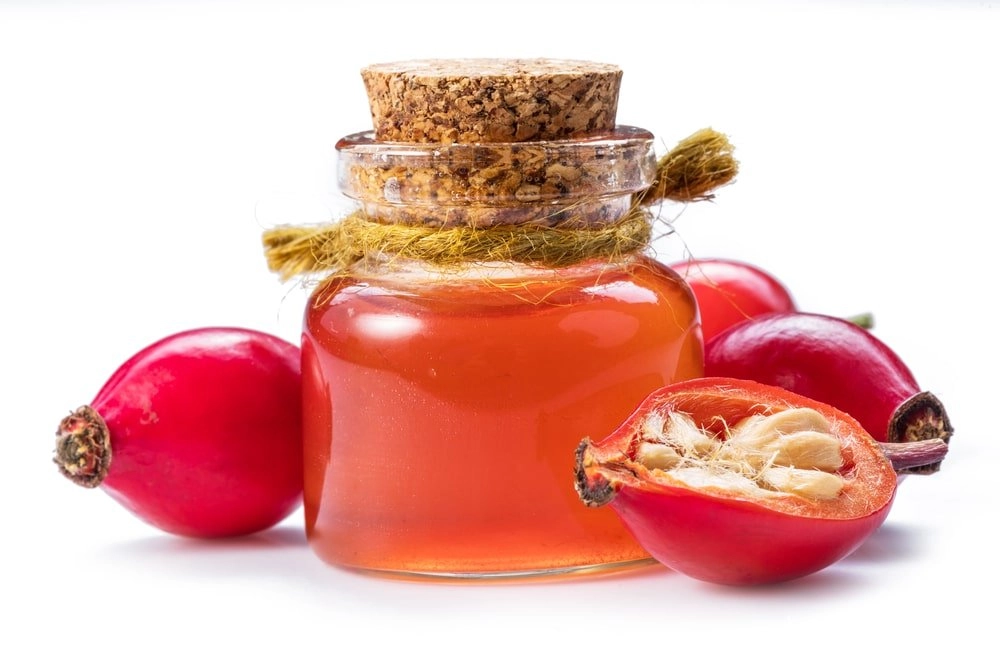
Rosehip oil is an oil that is derived from the seeds of rose bushes and is most often grown in Chile. In ancient times, rosehip oil was used by Egyptians, Native Americans and Mayans due to its ability to promote healing. Rosehip oil was also made into a syrup in Britain to enhance the resistance of children, which helped to ward off various illnesses.
Rosehip oil, which is also referred to as rosehip seed oil, was used in ancient healing and modern-day skincare due to its high number of antioxidants, vitamins and fatty acids.
How the oil is extracted from the seeds is important because if certain chemicals or too-high temperatures are used, then it decreases the number of vitamins, antioxidants and fatty acids that remain in the oil. Look for cold-pressed rosehip oil options.
Rosehip oil is used in aromatherapy and has been effective at lowering blood pressure levels, as this oil is able to promote full-body relaxation, effectively alleviating stress and tension. This ancient oil is also able to protect the skin from sun damage, which could potentially ward off cancer in some cases.
Rosehip oil benefits
Like hyaluronic acid, rosehip oil has numerous benefits.
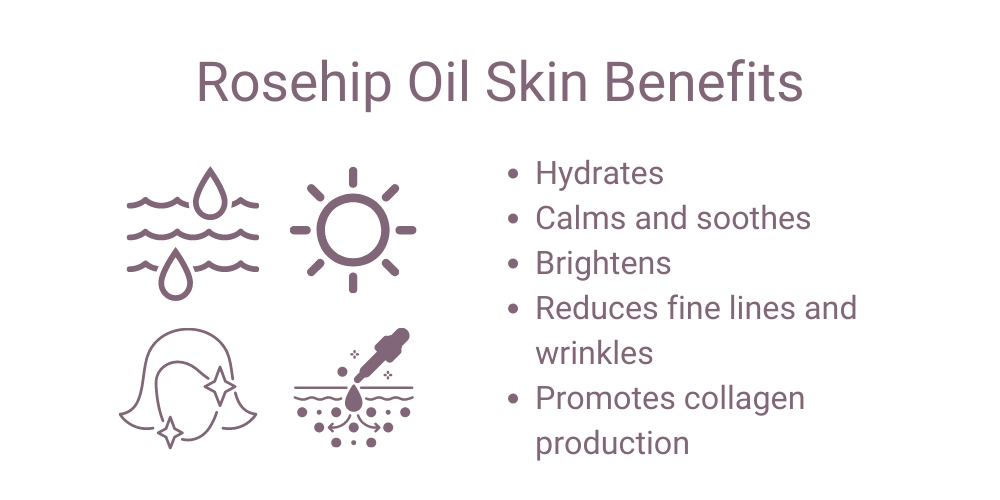
Promotes healing and regeneration
First of all, this ancient oil is considered to be an essential oil, and it heals eczema and acne scarring by encouraging regeneration of the skin. Rosehip oil is also a great immune system enhancer, as one of its main ingredients is vitamin C, which is known to boost the immune system and help the body to ward off colds, viruses, and the flu.
Soothes and calms
Rosehip oil made into tea has been proven to be beneficial for reducing inflammation in the body, therefore making it an excellent natural treatment for osteoarthritis pain and stiffness.
Fights the signs of aging
One of the main uses of rosehip oil is in skincare products, because this ancient oil has many anti-aging and skin regeneration properties. Not only does rosehip oil penetrate deeply into the skin and deposit vitamins A and C, but it also helps to ward off free radicals.
Free radicals are the body’s enemies, as they promote cancer and aging, so rosehip oil is known as an anti-cancer oil. This wondrous oil can also normalize the pigmentation of the skin tone as well as improve the texture of the skin.
More rosehip oil comparison you’ll like:
- Rosehip oil vs. squalane
- Rosehip oil vs. marula oil
- Rosehip oil vs. argan oil
- Rosehip oil vs. retinol
- Rosehip oil vs. vitamin C
Hyaluronic acid vs. Rosehip oil
People often compare HA and rosehip oil, since they are both frequently used in skincare products. There are many similarities between hyaluronic acid and rosehip oil, and here is an overview of some of these similarities:
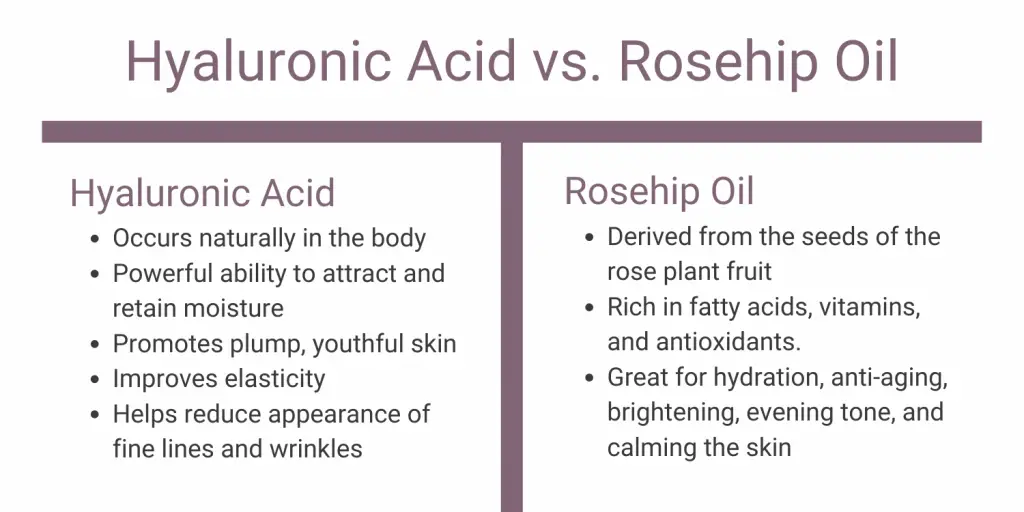
Similarities between Hyaluronic acid and rosehip oil
- Both are effective alternative treatments for osteoarthritis
- HA and rosehip oil both promote younger-looking skin
- Hyaluronic acid and rosehip oil both provide the skin with immense hydration
- HA and rosehip oil are both excellent for those with dry skin, but they’re both suitable for all skin types
- Both products are gentle and non-irritating to most skin types
Despite the many similarities these popular skincare products share, there are also many differences in these two frequently-used skincare product ingredients. Here is an overview of these differences.
Differences in hyaluronic acid and rosehip oil
- Hyaluronic acid provides ample moisture while rosehip oil seals in the moisture, enabling it to penetrate deeply into the skin
- Rosehip oil incorporates rich vitamins like vitamin C and Vitamin E into the skin, which fight off free radicals
- Rosehip oil can improve scarring on the skin and even reduce uneven pigmentation
- Hyaluronic acid can be injected into the skin to promote antiaging benefits, while rosehip oil cannot be injected
- Hyaluronic acid can also be taken in supplement form, and while rosehip can be taken in supplement form, rosehip oil cannot be
Which is better? Hyaluronic acid or rosehip oil?
Both these ingredients are fantastic options, which makes it difficult to state which one is better. Determining which ingredient is better depends on a person’s skin and their specific needs.
Although these two compounds work similarly, they work in different manners.
Hyaluronic acid focuses more on entering into the cells of the skin and causing them to become plump. This is great for people with lines and wrinkles that they want to be smoother so they can appear younger.
Rosehip oil does not absorb moisture the way HA does, but it acts as a sealant to keep the moisture in the skin. Rosehip oil can help individuals look more youthful by minimizing the appearance of age spots, reversing mild to moderate acne, and stimulating the skin to produce more collagen.
Natural collagen production diminishes as a person ages, which can cause a person to appear older, with more prominent wrinkles and lines. However, since rosehip oil promotes the production of collagen, aging skin can be improved.
Hyaluronic acid and rosehip oil together
Hyaluronic acid and rosehip oil work beautifully together, as they are able to complement one another. While HA provides extreme moisturization to the skin, rosehip oil seals in the moisture, keeping the skin looking supple and youthful longer than if these ingredients are used separately.
The two compounds work more thoroughly when rosehip oil is used after the hyaluronic acid has been applied to the skin, since rosehip oil seals in the moisture that the HA promotes.
These two common skincare ingredients can also work synergistically to reduce lines and wrinkles and help a person to appear younger, with brighter, more attractive skin.
HA plumps up the skin so that wrinkles and lines are less prominent and more hydrated, while rosehip oil encourages the growth of more collagen, which also reduces the appearance of lines and wrinkles.
The rosehip oil also seals in the moisture that HA encourages, which further benefits the skin and helps it appear younger-looking.
This is why hyaluronic acid and rosehip oil are such popular skincare product ingredients. They’re both safe, gentle, and quite effective at improving the skin in multiple ways.

